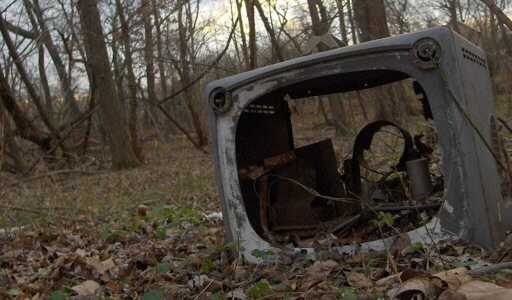NPR is kind of just shrugging it off since it’s only about 1-4% of their funding as it was, but like everything this admin and Congress does, it’s apparently mostly going to fuck with rural people who rely more on it.
That said, Internet exists so I’m pretty sure the blues in the red will still have access.
That said, Internet exists so I’m pretty sure the blues in the red will still have access.
Access is one thing, the stories that’s actually pertinent to the people is another.
I live in one of those areas where the local NPR stations run stories for the local farming communities, the things that will make a LOT of difference for the people around, the investigative journalism for things that come up for this area. When doing online news… you get a lot of the coasts. One of those local stations is VERY in danger of shutting down with this.
Oh well. I know my local station is going to be okay, those out there, it’s gonna suck for them. I’ll keep saying it, I’ll feel bad for those that voted against it, you have my condolences as we all live in this shitshow together. But those that voted for or didn’t bother to vote that get affected by this, well I’ll just take the consolation prize of shaudenfruede
A lot of people tune in to PBS as a habit. They leave it on in the background.
They won’t be able to do that anymore
I think you might be overestimating how good internet access is in rural areas. My grandparents still had dialup in the 2010s and after were only able to get a 2mbps DSL line that never ran at its rated speed. Satellite internet was then and, even with Starlink, is still very expensive, especially for people on a fixed income. This was also in an area with patchy at best cell reception that only got worse as 4G was being rolled out. Even FM signals were patchy at the house and TV reception tanked after the digital switchover. (This is also why you may have heard about some people fighting to keep AM radio around.)
My grandma’s main connection to the outside world was NPR on the way to work and the state PBS station that was rebroadcast from a somewhat close small college town.
True, and I’m most worried about older folks like that. I think DSL wouldn’t have too much trouble with podcasts but it’s on demand and many people, myself included, tend to get it more via radio on a commute rather than actively seeking it.
It’s probably part of a broader plan to keep these people in the dark, so while I’m not personally impacted, I am worried about the ramifications for others like that.
As someone who had 1.6mbps dsl for a long time (up until 2018), it is plenty for streaming audio. It’ll do 480p video pretty well, and depending on bitrate can sometimes do 720p. Multiple users for video streaming is impossible, but should work ok for audio.
All my favorite stations are publicly funded
PBS passport is 60/year.




